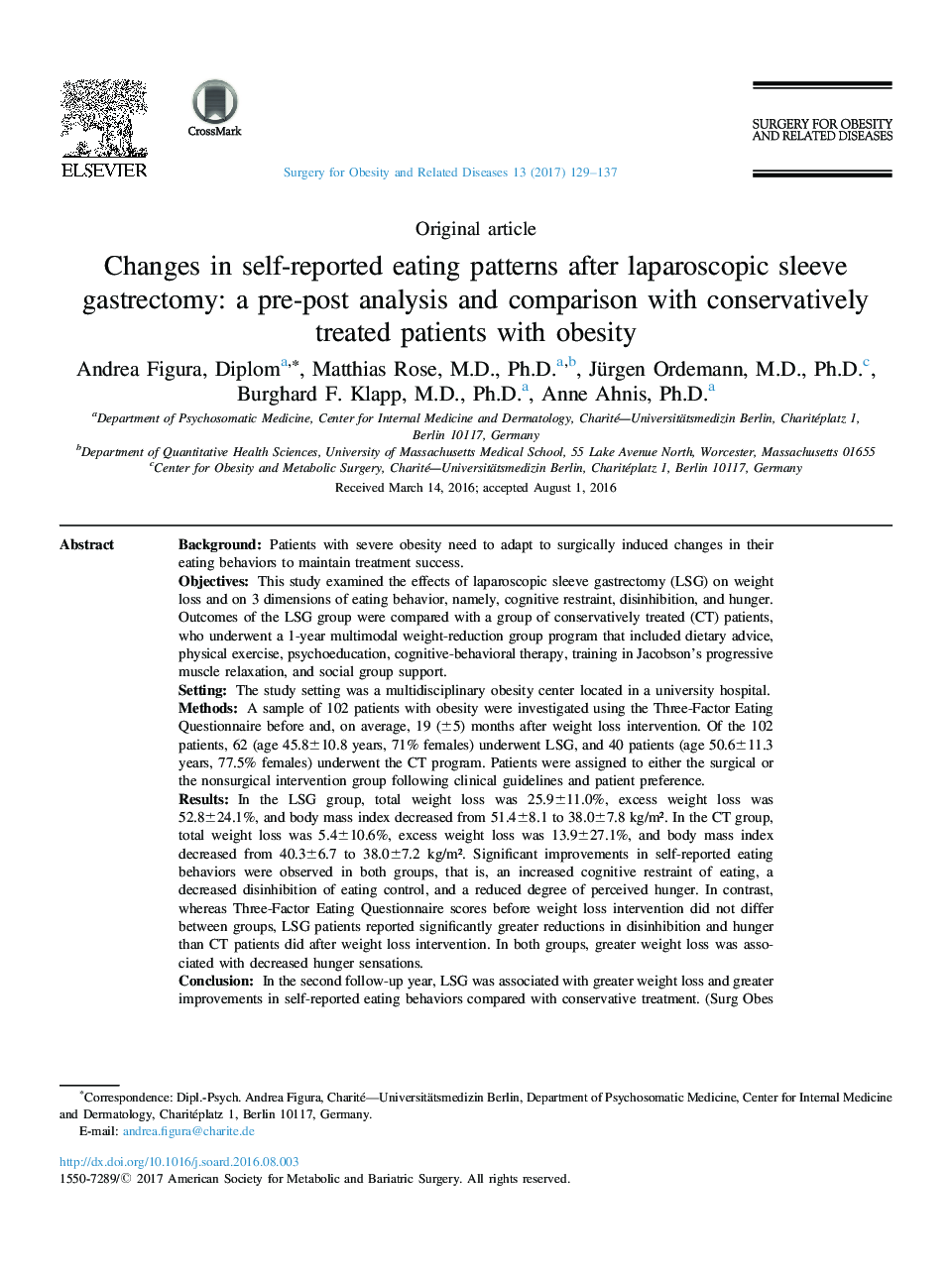| کد مقاله | کد نشریه | سال انتشار | مقاله انگلیسی | نسخه تمام متن |
|---|---|---|---|---|
| 5662067 | 1407548 | 2017 | 9 صفحه PDF | دانلود رایگان |
BackgroundPatients with severe obesity need to adapt to surgically induced changes in their eating behaviors to maintain treatment success.ObjectivesThis study examined the effects of laparoscopic sleeve gastrectomy (LSG) on weight loss and on 3 dimensions of eating behavior, namely, cognitive restraint, disinhibition, and hunger. Outcomes of the LSG group were compared with a group of conservatively treated (CT) patients, who underwent a 1-year multimodal weight-reduction group program that included dietary advice, physical exercise, psychoeducation, cognitive-behavioral therapy, training in Jacobson's progressive muscle relaxation, and social group support.SettingThe study setting was a multidisciplinary obesity center located in a university hospital.MethodsA sample of 102 patients with obesity were investigated using the Three-Factor Eating Questionnaire before and, on average, 19 (±5) months after weight loss intervention. Of the 102 patients, 62 (age 45.8±10.8 years, 71% females) underwent LSG, and 40 patients (age 50.6±11.3 years, 77.5% females) underwent the CT program. Patients were assigned to either the surgical or the nonsurgical intervention group following clinical guidelines and patient preference.ResultsIn the LSG group, total weight loss was 25.9±11.0%, excess weight loss was 52.8±24.1%, and body mass index decreased from 51.4±8.1 to 38.0±7.8 kg/m². In the CT group, total weight loss was 5.4±10.6%, excess weight loss was 13.9±27.1%, and body mass index decreased from 40.3±6.7 to 38.0±7.2 kg/m². Significant improvements in self-reported eating behaviors were observed in both groups, that is, an increased cognitive restraint of eating, a decreased disinhibition of eating control, and a reduced degree of perceived hunger. In contrast, whereas Three-Factor Eating Questionnaire scores before weight loss intervention did not differ between groups, LSG patients reported significantly greater reductions in disinhibition and hunger than CT patients did after weight loss intervention. In both groups, greater weight loss was associated with decreased hunger sensations.ConclusionIn the second follow-up year, LSG was associated with greater weight loss and greater improvements in self-reported eating behaviors compared with conservative treatment.
Journal: Surgery for Obesity and Related Diseases - Volume 13, Issue 2, February 2017, Pages 129-137
